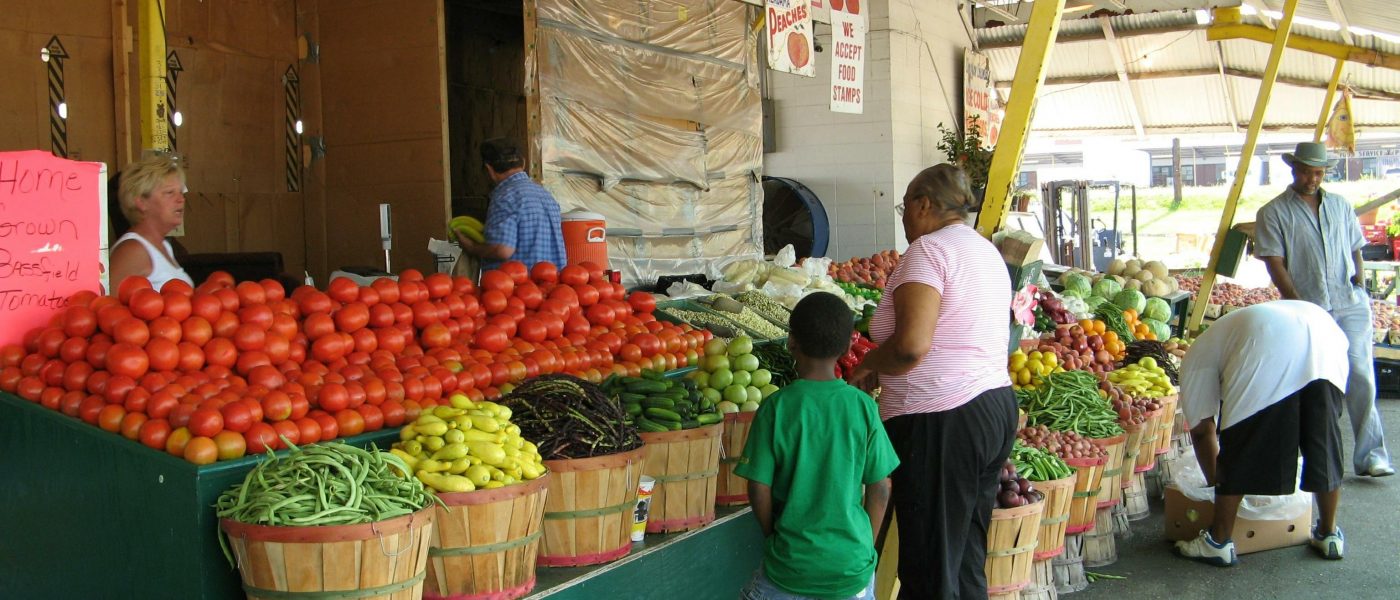We moved into the July Fourth weekend last week with some good news: On Thursday, Senator Cory Booker (D-NJ) introduced The Local Food Assistance and Resilient Markets (FARM) Act of 2020.
The FARM Act is an important support for small and mid-sized farms, many of which are facing loss of markets as a result of the coronavirus pandemic. The bill increases funding and access for farmers to sell their products locally to schools, farmers markets, food hubs, and food banks; improves access to farm loans; and expands use of online SNAP (Supplemental Nutrition Assistance Program) benefits to farmers markets and similar direct-to-consumer markets.
“We have to make sure family farmers are on the land. Farmers bring us so much,” said Carolyn Mugar, Farm Aid’s executive director. “COVID-19 has revealed the very limits and faults of our corporate farm and food system controlled by a few, versus the small and mid-sized farms—supported by this bill—who are part of local and regional food systems. These family farmers have the resilience, creativity and agility to adapt and keep feeding us during times of great uncertainty. Family farmers—particularly those who have historically been underserved by USDA programs—deserve the support this bill offers to strengthen their efforts, which in turn strengthen all of us.”
Joining Farm Aid in support of this bill is our partner National Family Farm Coalition (NFFC). NFFC Board President Jim Goodman, a Wisconsin dairy farmer, said, “The National Family Farm Coalition and Farm Aid are long standing partners in advocating for expanded opportunities and fair prices for small, women and beginning farmers as well as Black, indigenous, and other historically under-served producers. A light is finally being shed on the systemic racism and social injustice faced by all people of color, not just farmers, but also those communities that lack access to adequate nutrition. The COVID-19 crisis has exposed the fragility of our consolidated food system, and pointed out the need for a more resilient local food system that adequately rewards farmers and serves the needs of people most at risk. Reflective of our long term goals, NFFC and Farm Aid strongly support Senator Booker’s Local Food Assistance and Resilient Markets (FARM) Act knowing that it will strengthen local food systems by supporting direct connections between farmers and consumers, shortening the food chain and reducing food insecurity.”
The legislation has five components:
- Creates Specialty Crop Block Grants. Provides grants to states to award to food assistance organizations and other entities focused primarily on marketing locally grown food to procure and distribute specialty crops to those in need. Fifty percent of the specialty crops must be purchased from small, beginning, and historically underserved producers.
- Expands Online Supplemental Nutrition Assistance Program. Provides grants to States to develop tools and provide technical assistance to (1) increase the number of retailers able to accept and redeem online SNAP benefits and (2) expand the capacity of retailers able to accept and redeem online SNAP benefits. At least 25 percent of funds must be used to assist local and regional retailers such as farmers markets, food hubs, and agricultural cooperatives.
- Reduces Matching Requirements. Temporarily reduces the match requirement for certain nutrition programs and grant programs under the Local Agriculture Market Program (LAMP), an existing federal program that supports local food systems.
- Expands LAMP Funding. Provides an additional $500 million for LAMP, with $100 million dedicated to organizations that serve historically underserved producers. Provides $50 million for grants to assist producers in finding ways to get their products to consumers. Allows for grant funds to be used for market rebuilding projects.
- Expands Farm Microloans. Provides an additional $350 million for 3 years for the Farm Microloan program and doubles the loan cap from $50,000 to $100,000. Temporarily waives certain eligibility requirements, extends repayment terms at a 1% or less interest rate, and gives priority to beginning, socially disadvantaged, and niche or nontraditional farmers and ranchers.
“COVID-19 has revealed the very limits and faults of our corporate farm and food system controlled by a few, versus the small and mid-sized farms that have the resilience, creativity and agility to adapt and keep feeding us during times of great uncertainty.”
The legislation is endorsed by the American Grassfed Association, the Campaign for Family Farms and the Environment, Farm Aid, Family Farm Action, the Farmers Market Coalition, the Farm and Ranch Freedom Alliance, Food & Water Watch, Friends of the Earth, the Institute for Agriculture and Trade Policy, Iowa Citizens for Community Improvement, the National Co+op Grocers, the National Family Farm Coalition, the National Organic Coalition, the National Sustainable Agriculture Coalition, the Northwest Atlantic Marine Alliance, the Organic Consumers Association, the Organic Farmers Association, the Pennsylvania Farmers Union, People’s Action, Regeneration International, RAFI-USA, and the Rural Coalition.
The full text of the bill is available here.



